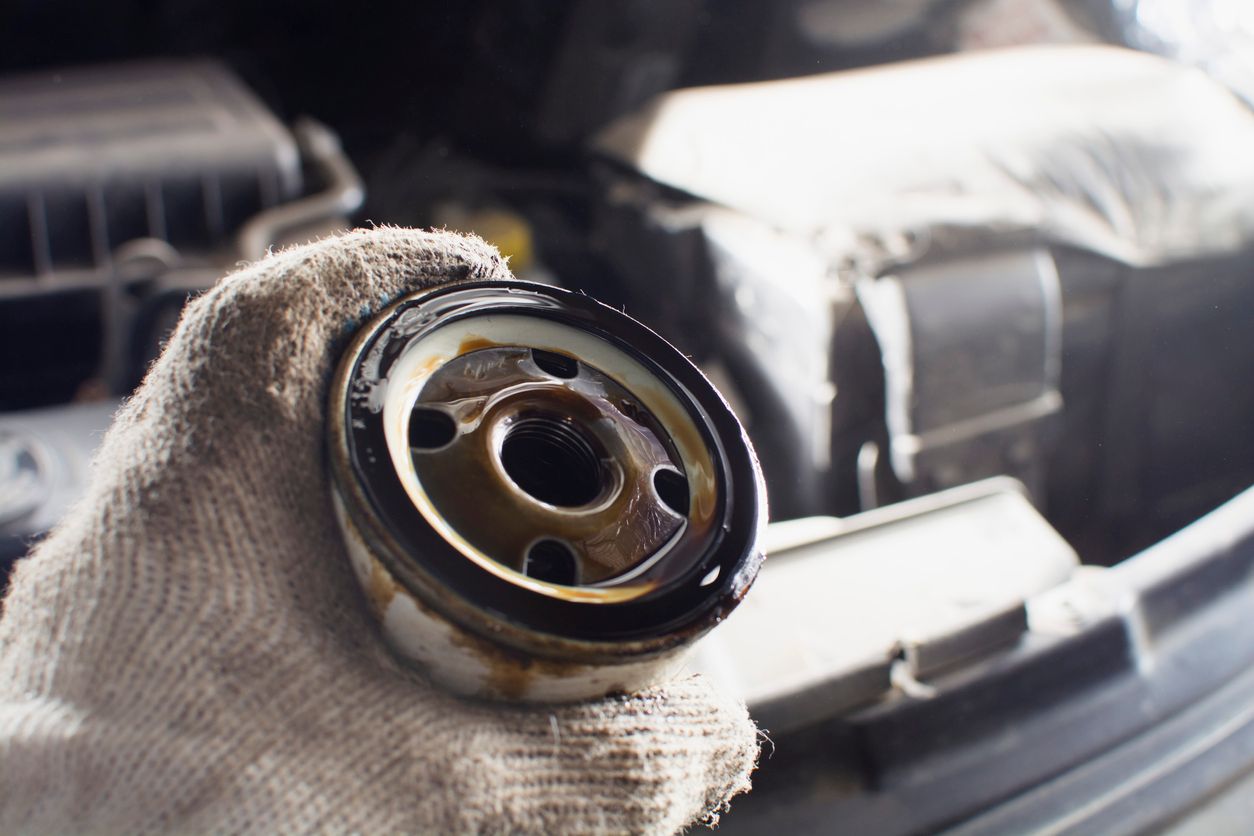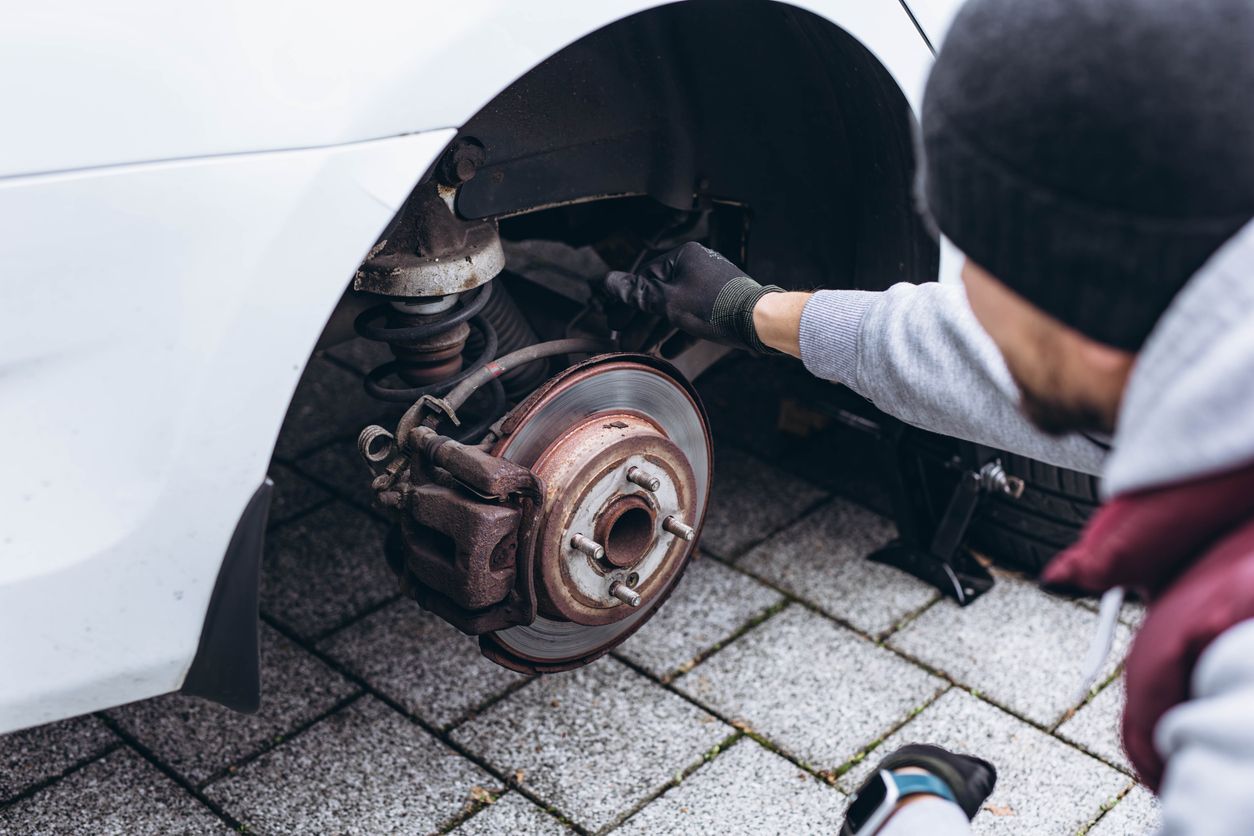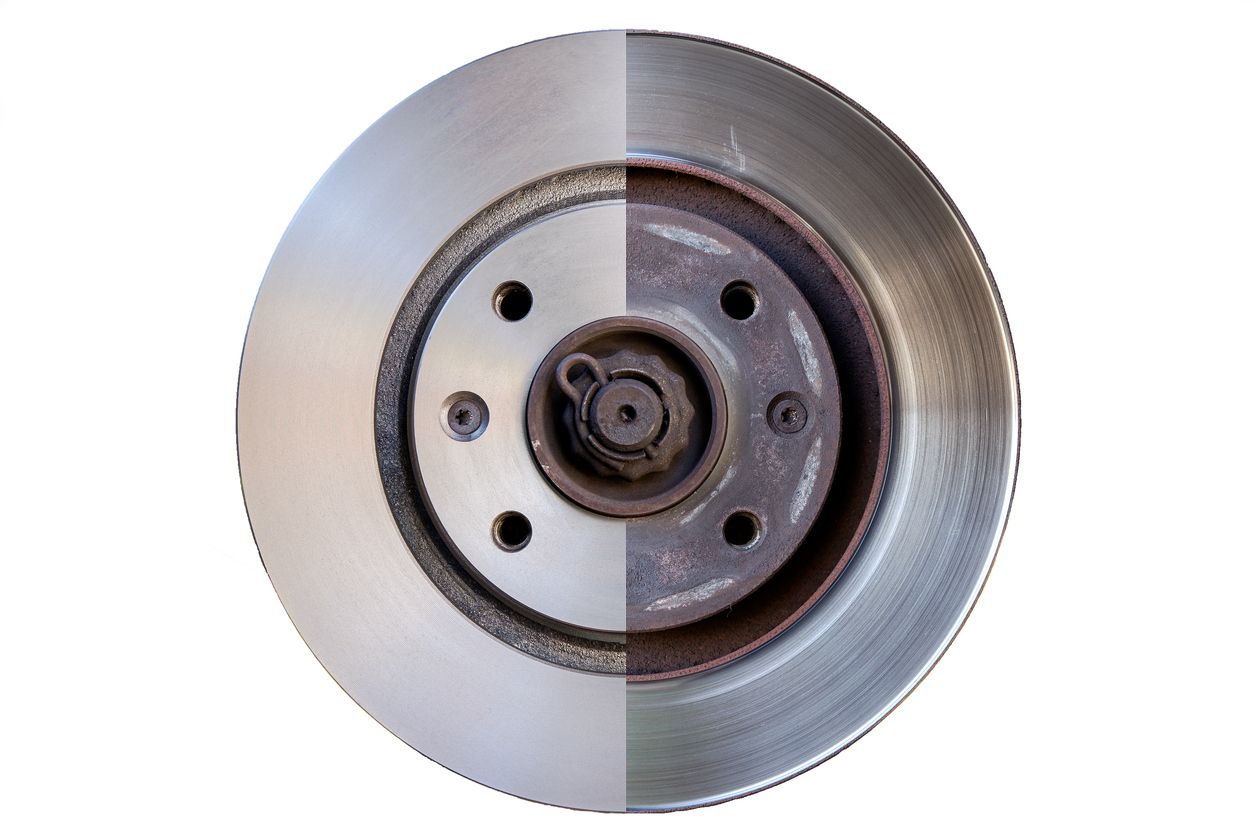Maintaining your vehicle's braking system is crucial for your safety on the road. And one of the most critical components of the braking system is brake fluid. Keeping the brake fluid clean and contamination-free is essential to ensure the brakes function correctly.
Here’s everything you need to know about common brake fluid issues, how to tell if it has been contaminated, and when you should head to Firestone Complete Auto Care for brake services.
How Does Brake Fluid Get Dirty?
Brake fluid is a hydraulic fluid that helps transfer the force from the brake pedal to the brake pads or shoes. The fluid works by transmitting pressure through a closed system of metal lines and hoses while also lubricating moving components to help prevent wear.
However, most vehicles use glycol-based brake fluids, which are hygroscopic, meaning the fluid can absorb moisture from the atmosphere over time. Moisture contamination can cause brake fluid to lose effectiveness and lead to the corrosion or rusting of internal brake components. These compromised parts can begin to slough off some of their materials and cause dirty brake fluid over time.
Contaminated Brake Fluid Symptoms
Contaminated brake fluid can result in many symptoms that may indicate issues with the braking system. Here are some potential signs of brake system issues:
1. Illuminated Check Engine or ABS Light
Many modern vehicles have sensors that detect low brake fluid levels. These sensors can trigger warning lights on the dashboard, alerting you to check your brake fluid level or indicating that it may be time to have it replaced.
2. Corroded Brake Parts
Moisture contamination can cause metal brake components, such as brake lines, calipers, caliper pistons, and wheel cylinders, to rust and weaken. Once corrosion inhibitor additives in the brake fluid are spent doing their job, chemical corrosion can also start to attack the copper in some parts of the brake system.
Have your brake fluid checked regularly and replaced when needed — according to your manufacturer's suggested maintenance schedule. Doing so can help maintain the integrity of your brake system components and optimal braking performance.
3. Reduced Braking Performance
If your brake pedal feels spongy or takes longer to respond than usual, this may be a direct result of contaminated brake fluid. The intense pressure and high temperatures associated with hard braking can cause any excess moisture in the system to boil, forming steam pockets in the brake lines. Any air from mechanical leaks or steam pockets can cause the pedal to respond slower, sink lower when engaged, feel less firm, and ultimately reduce your vehicle's stopping power.
Other factors, such as a worn master cylinder, can cause spongy brakes. Regardless of the cause, you may want to consider stopping by your nearest Firestone Complete Auto Care for a brake inspection and repairs if needed.
4. Unusual Brake Noises
Part of the brake system hardware is also susceptible to road debris and rust which can accumulate where brake parts need to move freely. This obstruction may lead to squealing, grinding, or scraping sounds when your brakes are engaged. Although there are various potential causes for these noises, thorough brake inspection and service can also address these situations.
5. Leaking Brake Fluid
As mentioned, contaminated brake fluid can cause brake system components to corrode and wear. This loss of component integrity (or other sources of wear) can lead to cracks and leaks, and you may begin to notice leaking brake fluid beneath your vehicle near the wheels.
Leaking brake fluid should never be ignored, and if you notice a burning smell coming from your brakes, your brake fluid may be dangerously low. In this case, repair is likely required, and you should visit a professional technician ASAP since this is a safety-related issue.
6. Brake Fluid Discoloration
Perhaps the most apparent sign of contaminated brake fluid — discoloration or visible foreign material. When checking the brake fluid reservoir, you may notice its unusual color. While brake fluid can vary in hue, a darker tint, floating particles, or an emulsion may indicate contamination. To be certain, you have the fluid professionally inspected and tested at Firestone Complete Auto Care since color alone is not enough to indicate needed replacement is needed.
7. Brake Fade
Contaminated brake fluid could cause brake fade, which is when the braking system can’t generate enough friction to stop your car properly. Your brakes can become less responsive and less effective over time.
Trust Firestone Complete Auto Care for Brake Fluid Services
At Firestone Complete Auto Care, we understand the importance of maintaining your vehicle's braking system and brake performance. Our experienced technicians use high-quality brake parts and equipment to ensure your vehicle's brakes are functioning correctly.
Our brake services include brake inspections, brake pad and rotor replacement, brake fluid exchange, and more. We also offer a lifetime warranty on brake pads and shoes and an extended labor warranty when you add a brake fluid exchange to your brake service appointment. Schedule your brake service now at a Firestone Complete Auto Care near you.



